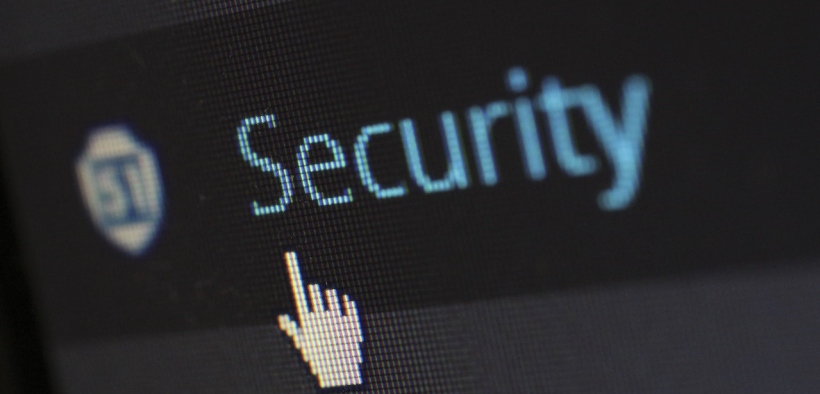5 Top Cyber Security Tips To Keep Your Business Safe in 2023
Share

2023 is fast approaching and, as you wind down for the festive break, you’ve probably already been thinking ahead to the new year and what plans you have instore for your business. Whether you’re looking to set new business goals, reach higher KPIs or grow your team, 2023 is set to be a fresh and exciting year. As is the case with many businesses, it’s likely that you largely operate online and, as a result, this unfortunately also means that you are at risk of a cyber attack or breach, as are all businesses.
Cyber threats and attacks won’t be going anywhere in 2023 and, in fact, reported cases of cyber attacks are set to increase substantially. It is predicted that around 85% of small and midsize businesses will spend more on their cyber security defences in 2023. With new cyber threats emerging almost every day and the advancement in digital devices and technology, cyber criminals are finding new ways in which they can exploit weaknesses in your networks and devices.
Whilst it might seem as though cyber security is something that just IT professionals need to be concerned about, it’s important that all businesses look into their current cyber security protocols and become aware as to how their business could potentially be compromised. Let’s take a look at some top security tips to keep your business safe in 2023.
Initiate Two-Factor Authentication
Standard login processes use just one method of singe factor authentication and typically combine a username or email address with a password. The problem with this method of authentication is that they can be relatively easy to hack, especially for cyber criminals. Your password can be guessed by anyone who wants to gain access to the account easily enough – and they often are. If someone is able to figure out your password and gain access to your personal information through a weak single factor authentication password, then they can easily steal this information or initiate harmful ransomware.
Two-factor authentication is an additional login process which adds in an extra layer of security to your online accounts. Simply put, this type of login requires the use of two types of information as opposed to one, and the second type usually requires more personal data or you are asked to provide information which is something that only you know.
This could be something as simple as a unique code that is regularly and randomly generated through an app, a one time login code sent through SMS to a trusted device or a biometrics login authentication or face recognition (such as Apple’s Face ID technology). A two-factor authentication login process isn’t just for convenience, it is for the safety of your business information as well as your employee’s personal information.
Be Aware Of Phishing Emails
One of the biggest causes of cyber attacks on businesses is human error, whether this is through downloading infected documents, clicking on suspicious links or opening engineered emails. Phishing emails are a type of cyber attack which attempts to steal money, personal information or encourage the downloading of malware from recipients. Recipients can either be targeted through something known as business email compromise, where criminals will impersonate people who hold high positions in a business, or are sent to a wider email chain.
In a business, your employees will likely receive a large number of phishing emails as a standard practice, but it’s important for your employees to understand and recognise the signs of a phishing email. This can then minimise the risk of your business falling victim to phishing attacks. Encourage employees to never click on suspicious links, open attachments sent from unsolicited emails and even be wary of links sent through social media.
Use A VPN
Private Wi-fi networks can be secure, but they’re not always the most reliable network. Depending on the sensitive information your business handles, you may wish to reduce the risk of falling victim to a cyber security breach by using a private VPN.
Using a VPN, or a virtual private network, helps to keep your data and browsing information secure. It encrypts website traffic and hides IP addresses which then makes it difficult for hackers or cyber criminals to get hold of your business information. If you have a remote working team, then a VPN also protects them whilst working from home or when using shared Wi-fi, which in turn also keeps your business networks and information safe and secure.
Keep Software Up To Date
Perhaps one of the most important cyber security tips is to keep all network software and devices up to date. Over time, as devices and networks are more regularly updated and older versions become obsolete, people tend to forget about keeping these devices up to date. This then makes them more vulnerable to hackers, who can work to exploit the system.
Ensure that you are regularly backing up all business networks and internal and external devices so that they are all using the latest softwares. This is something that Apple frequently does with their security settings. When they update and review their security procedures and find any weaknesses or bugs, they then roll out network-wide security updates that all devices need to update to in order to function properly.
It’s also recommended that you keep a backup of all data and networks on an offline device, such as an encrypted hard drive. This vastly reduces the risk of it being compromised or suffering from a security breach, as online cyber hackers will be unable to access it remotely.
Invest In Business Cyber Security
One of the main reasons as to why so many businesses fall victim to devastating cyber security attacks is that they are simply unprepared for them. Many businesses owners aren’t quite sure what is required when it comes to keeping their companies safe online, or don’t have the time to dedicate to sourcing and implementing such resources. As a result, this then makes businesses vulnerable to attacks and breaches, from which can be financially and reputably devastating. If you don’t have the time or infrastructure to implement a proper cyber security plan, invest in business cyber security services instead.
By doing so, you are investing in a dedicated team who are specialists in providing cyber security for businesses of all sizes and can help with almost every aspect of it. Whether it’s ensuring your networks are frequently updated and backed up, providing phishing awareness training schemes for employees so that they can recognise the signs of potential cyber threats or creating a detailed plan of action in the case that something does go wrong, there are so many benefits that can come from outsourcing your cyber security to a dedicated cyber security business.









